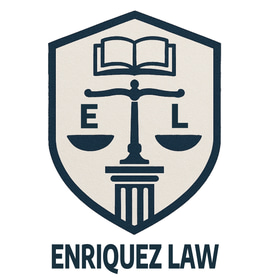Substitute Parental Authority Over an Illegitimate Child.
This post examines a Supreme Court ruling clarifying the custody rights over illegitimate children after the mother's death, emphasizing the child's welfare over biological ties.
5/28/20253 min read


The recent ruling by the Supreme Court’s Second Division has shed light on the intricate dynamics of parental authority, particularly concerning illegitimate children.
In the case of Spouses Gabun v. Stolk, Sr. penned by Associate Justice Antonio T. Kho, Jr., the Court partially granted the petition of collateral grandparents, challenging a lower court's award of custody to a minor's biological father. This ruling serves as a vital reminder that while biological ties are important, the welfare of the child, and the explicit provisions of the Family Code, ultimately dictate who exercises parental authority.
The case revolved around Winston, a minor, whose mother, Catherine Alfonso Daen, tragically passed away shortly after giving birth. Winston was subsequently left in the care of his collateral grandparents, Nora A. Lopez and Marcelino Alfonso, who are siblings of Winston's biological grandparents.
Winston Clark Stolk, Sr., the minor's biological father, initiated a habeas corpus proceeding, seeking absolute and permanent custody. The Regional Trial Court (RTC) granted Stolk's petition, relying on a DNA test confirming paternity and applying Article 212 of the Family Code, which states that in the event of one parent's death, the surviving parent continues to exercise parental authority.
However, the collateral grandparents argued for a Department of Social Welfare and Development case study, citing Stolk’s legal issues abroad and the need to determine the most suitable environment for Winston’s holistic development. Their appeal was unfortunately dismissed by the RTC for nonpayment of docket fees, and their subsequent certiorari petition before the Court of Appeals (CA) was denied for being time-barred.
The Supreme Court, however, found grave errors in the lower courts' rulings. The High Court clarified that the RTC erred in awarding custody to Stolk based solely on parentage, particularly in the context of an illegitimate child.
The Court emphasized the applicability of Article 214 of the Family Code, which dictates that in cases of death, absence, or unsuitability of parents, substitute parental authority shall be exercised by the surviving grandparent or other persons specified under Article 216 of the law. This, the Court asserted, applies even when sole parental authority is vested in one parent, such as the mother of an illegitimate child.
The Court underscored that the law explicitly grants sole parental authority to the mother of an illegitimate child, notwithstanding the father's recognition. To allow otherwise would circumvent the law's intent. Therefore, upon the death of the mother, the substitute parental authority falls upon the grandparents or other specified persons under Article 216.
When Can the Illegitimate Father Exercise Authority?
While this ruling reinforces the role of grandparents in such situations, the Supreme Court also clarified that it does not automatically and absolutely disqualify the father of an illegitimate child from exercising substitute parental authority. If the father is the child's actual custodian, he may indeed exercise parental authority and be granted custody. In Winston's case, Stolk and Daen were not married, meaning Daen held sole parental authority.
The Best Interest of the Child Prevails
Upon Daen’s passing, Winston's collateral grandparents could exercise substitute parental authority. However, the Court stressed that this is subject to a proper court determination, which must consider the factors enumerated in Section 14 of the Rule on Custody of Minors. These factors include the child’s health, safety, and welfare, and the most suitable physical, emotional, spiritual, psychological, and educational environment for the minor’s holistic development and growth. The RTC's "overreliance on the evidence of Stolk’s parentage" was deemed a grave error for neglecting these vital considerations and abandoning its legal and moral duty to rule in the best interest of the minor.
Disclaimer: This blog post provides general information and should not be considered legal advice. It is always best to consult with a qualified legal professional for specific situations and legal guidance.
